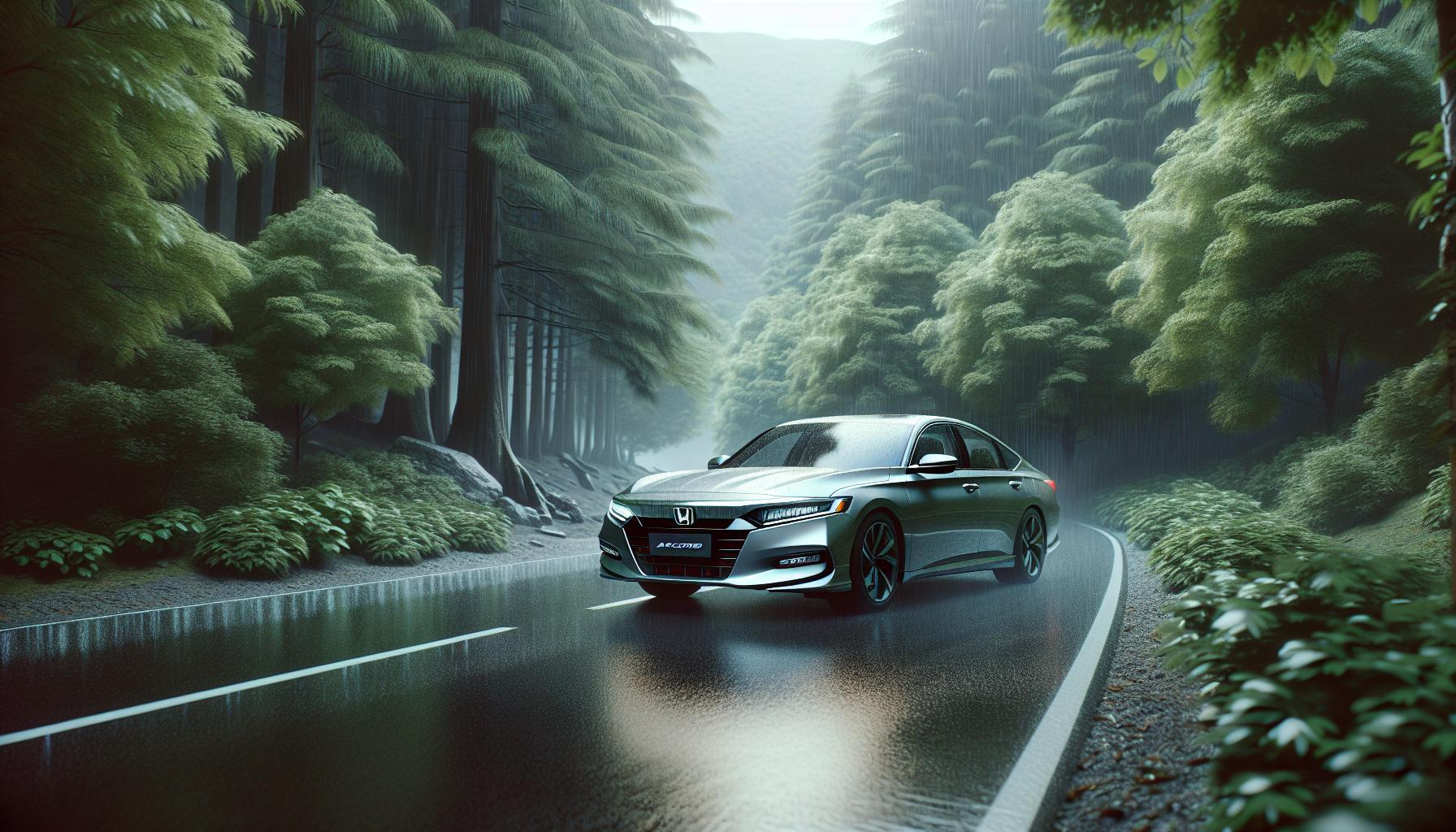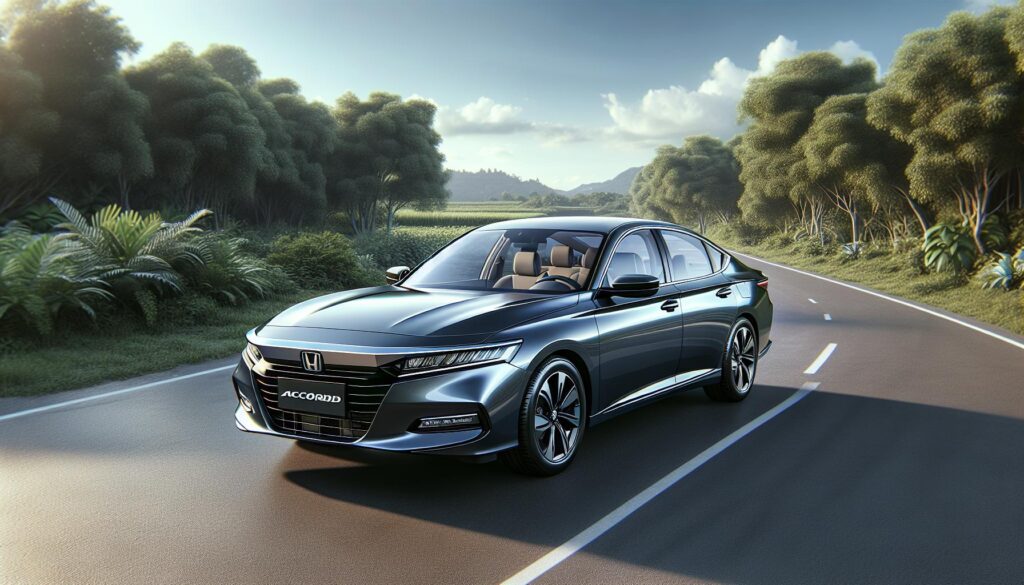The Honda Accord has long been a favorite among drivers for its reliability and comfort. However, as the demand for all-wheel drive vehicles grows, many potential buyers are left wondering if the Accord can meet their needs. With its sporty design and impressive performance, understanding the drivetrain options available is essential for making an informed choice.
While some competitors offer all-wheel drive as a standard feature, the Honda Accord has traditionally focused on front-wheel drive. This article dives into the specifics of the Accord’s drivetrain options, exploring whether all-wheel drive is available and how it compares to other vehicles in its class. For those considering the Accord, knowing the facts can help in deciding if it’s the right fit for their driving lifestyle.
Is a Honda Accord all Wheel Drive
The Honda Accord enjoys a prominent reputation for reliability, comfort, and practicality. It consistently features among the top choices in the midsize sedan market. The Accord’s design emphasizes spacious interiors, user-friendly technology, and solid driving dynamics.
Honda’s commitment to innovation ensures the Accord includes a range of modern safety features and fuel-efficient engines, appealing to a wide audience. Enthusiasts appreciate its sporty handling, while families value its ample passenger space and cargo capacity. The vehicle’s engineering emphasizes durability and low maintenance costs, contributing to its longstanding popularity.
Despite the growing demand for all-wheel drive (AWD) in the automotive landscape, the Accord remains primarily a front-wheel drive vehicle. Current models focus on enhancing traction and stability through advanced front-wheel drive systems. Acknowledging the market shift, Honda has incorporated AWD options in other models, yet the Accord continues to stand firm on its traditional front-wheel drive layout. This commitment reflects Honda’s strategy in balancing performance with the expectations of its customer base.
All-Wheel Drive Explained

All-wheel drive (AWD) enhances vehicle traction by distributing power to all four wheels. This system improves stability and control, especially in adverse weather conditions or on uneven terrain.
Definition of All-Wheel Drive
All-wheel drive refers to a drivetrain that supplies power to all four wheels simultaneously. This configuration allows for better handling and acceleration on slippery or challenging surfaces. In most AWD systems, power is automatically distributed between the front and rear axles, adapting to changing road conditions.
Difference Between All-Wheel Drive and Four-Wheel Drive
All-wheel drive and four-wheel drive (4WD) serve distinct purposes. All-wheel drive operates continuously and is ideal for on-road driving and light off-road conditions. Four-wheel drive, often found in trucks and SUVs, is designed for off-road use and can be manually engaged for rugged terrains. Both systems improve traction but vary in application and functionality.
Honda Accord Models and Drivetrain Options
The Honda Accord offers a range of models featuring advanced technology and various drivetrain configurations, primarily focusing on front-wheel drive (FWD) systems.
Current Models and Their Features
Current Honda Accord models, such as the Accord LX, Sport, EX-L, and Touring, primarily feature a front-wheel drive system. These models utilize a continuously variable transmission (CVT) for improved fuel efficiency and smooth acceleration. Engine options include a 1.5-liter turbocharged inline-four producing 192 horsepower and a more powerful 2.0-liter turbocharged inline-four generating 252 horsepower. All current models emphasize safety with Honda Sensing technologies, providing adaptive cruise control, collision mitigation braking, and lane-keeping assist. Despite shifts in the automotive market towards all-wheel drive platforms, Honda has not integrated AWD into the Accord lineup, maintaining its reputation for front-wheel drive comfort and performance.
Previous Models: A Historical Perspective
Earlier Honda Accord models featured a mix of front-wheel drive and a few all-wheel drive configurations. The 1989-1997 Accord offered the first-generation AWD option in its wagon variant, appealing to consumers wanting additional traction. With subsequent generations, Honda phased out AWD, focusing on refining front-wheel drive capabilities. Notable features from previous models included varied engine sizes, from the 2.2-liter inline-four to early V6 options, with technological advancements such as anti-lock brakes and advanced suspension systems. While the historical AWD offerings gave way to a stronger emphasis on FWD, the legacy of performance and reliability remained central to Accord’s identity.
Performance and Handling
The Honda Accord offers impressive performance and handling primarily through its front-wheel drive (FWD) configuration. While all-wheel drive (AWD) enhances traction and control in various conditions, the Accord’s FWD system maintains a strong reputation for stability and responsiveness on the road.
Benefits of All-Wheel Drive for the Accord
All-wheel drive can significantly enhance performance in challenging conditions. It improves traction on slippery surfaces, such as snow, rain, or ice, contributing to safer driving experiences. AWD systems also provide better acceleration and handling, allowing drivers to maintain control in corners and during abrupt maneuvers. Additionally, AWD configurations can enhance confidence in off-road scenarios, offering improved capabilities for light off-road excursions.
Limitations of All-Wheel Drive in the Accord
While all-wheel drive presents advantages, it also comes with limitations in the context of the Honda Accord. The absence of AWD in current models restricts options for buyers seeking enhanced traction. Front-wheel drive handles everyday commuting and light adverse conditions proficiently, but it lacks the added grip that AWD offers in severe weather. Furthermore, integrating AWD into the Accord may result in higher vehicle weight, potentially impacting fuel efficiency and performance. As such, Honda prioritizes refining the existing FWD system, focusing on delivering a balanced driving experience without AWD complexity.
The Honda Accord stands out for its reliability and comfort but lacks an all-wheel drive option in its current lineup. While many drivers appreciate its front-wheel drive system for everyday use and light adverse conditions, those seeking enhanced traction may find it limiting. Honda’s focus on refining the Accord’s FWD capabilities showcases its commitment to performance and efficiency. As the automotive landscape evolves with increasing demand for AWD, potential buyers should weigh their priorities carefully. The Accord remains a solid choice for those valuing comfort and practicality, but it may not meet the needs of everyone in harsher weather conditions.
